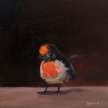Exploring Futurism: Shaping Tomorrow's World Today
Futurism Influences Today

Title: Exploring Futurism: Shaping Tomorrow's World Today
Introduction:
Futurism, as a concept and cultural movement, has long captivated humanity's imagination. It represents a forward-looking approach to understanding and shaping the future. Rooted in art, literature, science, and philosophy, futurism transcends disciplinary boundaries, offering a lens through which we envision possibilities, confront challenges, and innovate for tomorrow. This essay delves into the essence of futurism, its historical context, contemporary relevance, and the role it plays in shaping the trajectory of human civilization.
Historical Origins:
Futurism emerged in the early 20th century as a response to the rapid industrialization and technological advancements sweeping across Europe. Spearheaded by Italian poet Filippo Tommaso Marinetti, the Futurist Manifesto of 1909 called for a break from tradition, embracing the dynamism of modern life, and celebrating the beauty of speed, machinery, and urbanization. Rejecting the constraints of the past, futurists sought to propel society into a new era characterized by innovation, progress, and bold experimentation.
Artistic Expression:
Central to the futurist movement was its emphasis on artistic expression as a vehicle for envisioning the future. Futurist artists, such as Umberto Boccioni, Giacomo Balla, and Gino Severini, explored themes of movement, energy, and technological advancement in their paintings, sculpture, and literature. Through fragmented forms, vibrant colors, and abstract compositions, they sought to capture the essence of modernity and convey a sense of forward momentum.
Literary Exploration:
In addition to visual arts, futurism found expression in literature, particularly through Marinetti's provocative writings. His literary works, infused with themes of dynamism, violence, and the glorification of war, reflected the futurist fascination with speed and aggression. The literary futurists rejected conventional syntax and grammar, opting instead for unconventional typography and wordplay to evoke the sensory experiences of modern life.
Technological Optimism:
At the heart of futurism lies a profound sense of technological optimism—the belief that science and innovation hold the key to a brighter future. From the invention of the automobile to the dawn of aviation, futurists embraced technological progress as a means of transcending the limitations of the past. They envisioned a world where machines would liberate humanity from mundane labor, opening up new possibilities for leisure, creativity, and exploration.
Social and Political Implications:
Despite its embrace of technological progress, futurism was not without its controversies. Some critics accused futurists of glorifying war and militarism, particularly in the lead-up to World War I. Moreover, the movement's celebration of speed and industrialization raised concerns about its impact on the environment and human well-being. As futurism intersected with politics, it became entangled with various ideologies, from fascism in Italy to socialism in Russia, highlighting the complex relationship between technology, society, and power.
Contemporary Relevance:
In the 21st century, futurism continues to exert a profound influence on our collective imagination. In an era defined by rapid technological change and global interconnectedness, futurism offers a framework for navigating uncertainty and envisioning alternative futures. From the rise of artificial intelligence and biotechnology to the challenges of climate change and resource depletion, futurists grapple with complex ethical, social, and environmental dilemmas, pushing the boundaries of human knowledge and imagination.
Futurism in Practice:
Practitioners of futurism employ various methods and techniques to anticipate future trends and scenarios. Drawing on disciplines such as foresight studies, scenario planning, and speculative fiction, futurists engage in systematic analysis, creative thinking, and collaborative envisioning to explore alternative futures and identify strategic opportunities and risks. By combining quantitative data analysis with qualitative storytelling, futurists help individuals, organizations, and governments make informed decisions and shape desirable futures.
Ethical Considerations:
Central to the practice of futurism is a commitment to ethical reflection and responsible innovation. As we harness the power of emerging technologies to address pressing challenges and enhance human flourishing, we must also consider the potential unintended consequences and ethical implications of our actions. Futurists advocate for inclusive and participatory approaches to decision-making, ensuring that diverse voices and perspectives are heard in shaping the future we want to create.
Conclusion:
In conclusion, futurism represents a dynamic and multifaceted approach to understanding and shaping the future. From its origins in the early 20th century to its contemporary manifestations, futurism continues to inspire imagination, provoke debate, and drive innovation across diverse domains. By embracing technological optimism, artistic expression, and ethical reflection, futurists strive to chart a course towards a more sustainable, equitable, and resilient future for humanity. As we stand on the threshold of tomorrow, let us heed the call of futurism to dream boldly, act courageously, and create the world we envision together.






Comments
There are no comments for this story
Be the first to respond and start the conversation.